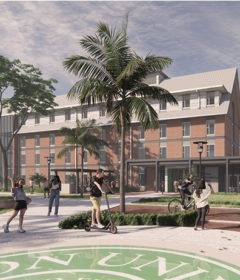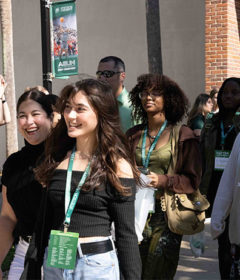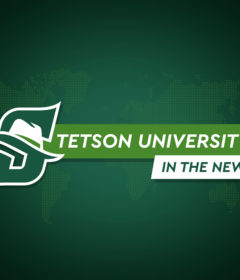Stetson’s Coffey is one of only two in Florida to win Udall Scholarship
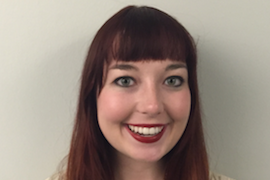
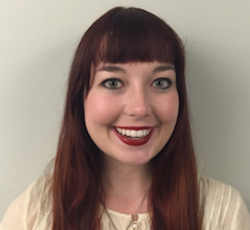
In a world inhabited by billions of people, sometimes it can feel like one individual cannot make an impact, but Sarah Coffey ’18, environmental science major, believes otherwise. Coffey is one of only two students in the state of Florida to win the prestigious Udall Scholarship.
“There are so many suggestions I have for the individual regarding one’s environmental impact,” she said. “First of all, unplug all devices when not in use, turn out lights when you leave a room and turn the thermostat up when you leave. Also, practice water conservation: take shorter showers, use a rain barrel to water plants, wash larger loads of laundry.
“I grew up with a personal relationship with the natural world and have always recognized this as an integral part of what it means to be human,” she said. “It is distressing to see how many of us have lost this connection.”
Established by Congress in 1992, the Udall Foundation awards scholarships to aid students who study in fields related to the environment and to American Indians and Alaska Natives in fields related to health care and tribal public policy along with providing funding to other environmental programs in America. Coffey was selected among 482 candidates to win $7,000 for her junior year.
“I’m from a little bit of everywhere, at least in the continental United States,” Coffey said. “I was actually born in Albuquerque, N.M., which is especially cool after receiving the Udall Scholarship since tribal policy and Native American issues make up a large component of the Udall Foundation.”
Coffey has also lived in Oregon, Maryland, Connecticut and Florida, and she attributes her awareness of the environment to experiencing this wide array of regions. “All these moves have allowed me to develop a genuine appreciation for ecosystem diversity and the unique cultures that form out of the human relationship with the environment,” she said. “Additionally, my parents always stressed conservation during my upbringing, whether it was turning off lights, taking shorter showers or recycling.”
Coffey serves as the president of Hatter Harvest, Stetson’s community garden and food awareness student organization. She is also the first environmental sustainability fellow at Stetson, where she calculates greenhouse gas emissions on campus and identifies areas of improvement for campus sustainability under the guidance of Tony Abbott, Ph.D., professor of environmental science and studies.
“I am incredibly inspired by so many of my professors at Stetson, and they have all influenced my journey, and I know that they will continue to do so over the next two years and beyond,” said Coffey. “I am grateful for all the faculty in the Environmental Science and Studies Department. I’ve had the pleasure of doing vegetation surveys in the San Juan Islands with Wendy Anderson, Ph.D., professor and chair of the Environmental Science and Studies Department. She has had a profound impact on my field experience. She is also my advisor and has guided me so well throughout the past two years regarding the courses I take and my trajectory as a future scientist.”
“Sarah Coffey is one of those students who demonstrates talent, integrity, persistence and leadership in everything she does,” said Anderson. “I fully expect that through any combination of science and policy, she will be a high level change agent for a safer and healthier future for humanity and for other species with whom we share this planet. We are proud to have Sarah representing Stetson with this Udall Scholarship!”
“No matter what happens in my future,” Coffey said, “I want to continue to learn more about our natural resources and our relationship with them. After all, we have the science and technology to fix the many environmental problems we currently face, but what we need is a social and cultural transformation. Unless each person recognizes the necessity of intact ecosystem function, we cannot make progress,” she said. “It is my goal to help others transform their lifestyles into ones that are happy, healthy and sustainable.”
Though this goal may take many years to accomplish, Coffey plans to occupy her upcoming time off from school with a month-long trip to Costa Rica to study the biodiversity, conservation and development of tropical ecosystems. “I know that immersing myself in this culture and these studies will help me to apply what I’ve learned so far at Stetson through the environmental science program,” she said.
While it may sound silly, Coffey asserts that cow farts are a huge contribution to climate change. “I’m not kidding,” she said. “While it may be hard, we should all try to eat less meat since it takes less water and energy to eat lower on the food chain.”
Coffey implements these tactics even as a student on campus. “When getting coffee at Einstein’s, ask to use your own mug. When at a restaurant, bring your own plastic containers rather than using the styrofoam take-out boxes. Buy what you need, not what you want, and try to re-purpose items when they no longer can perform their original function. For example, my parents taught me that if there’s a hole in one of your old socks, use it as a dish rag for a while.”
But most importantly, be in nature. Find your connection with your natural environment and encourage others to join you. If you feel attached to a place, you will care more about saving it.”
By Nicole Melchionda

